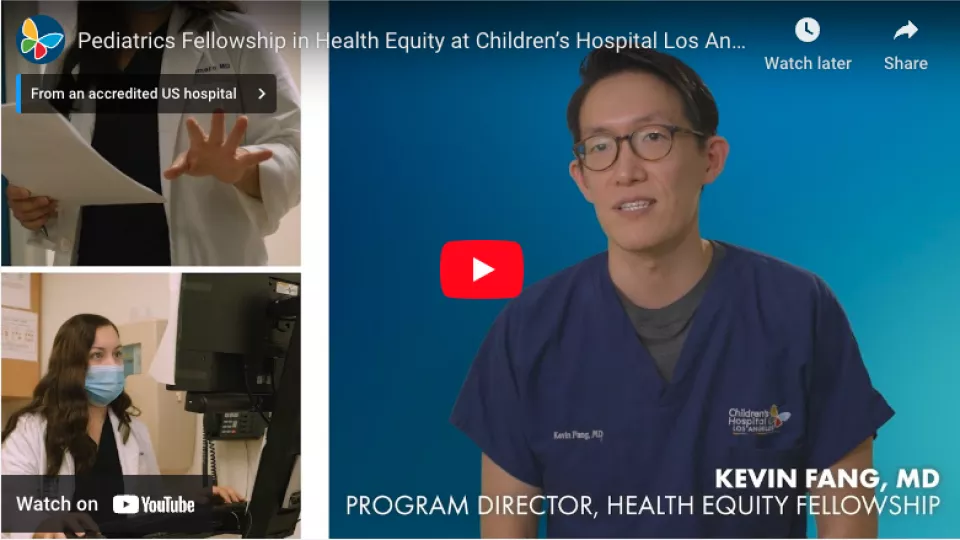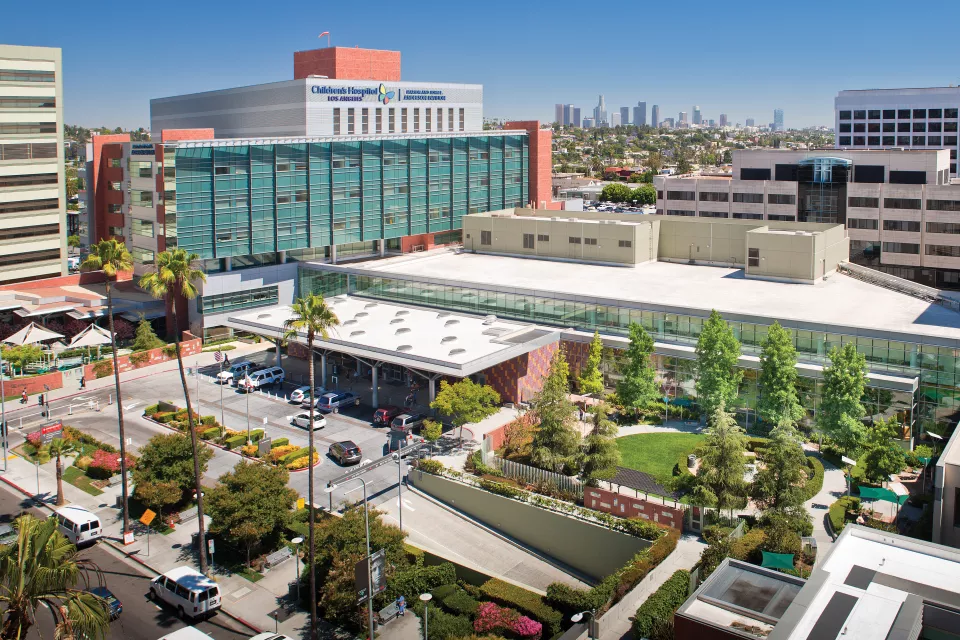
About the Fellowship
The General Academic Pediatrics Fellowship in Health Equity at Children’s Hospital Los Angeles is a two-year program with an optional third year. The program trains future leaders in providing high-quality care to all children with a focus on the underserved (not limited to socioeconomic status, race/ethnicity, special health care needs or sexual orientation). This leadership starts in the clinic, but spans all levels of advocacy for child health including education of trainees, research, community involvement and policy development.
Why CHLA?
Children’s Hospital Los Angeles is consistently ranked as one of the top pediatric health care institutions in the United States. What makes us unique, however, is our patient population. Our general pediatrics clinic is operated by AltaMed, which is the largest federally qualified health center in the nation. More than 90% of the clinic’s patients are on Medicaid/CHIP (known as MediCal in California) and 17% have special health care needs. In addition to primary medical care, there are optometry, dental and a variety of subspecialty clinics available within the clinic, as well as a robust patient-centered medical home team, which provides case management for 3,200 patients with complex medical needs, and family support services staffed by social workers and psychologists to address behavioral health and social health needs such as food and housing insecurity. This makes Children’s Hospital Los Angeles the perfect training ground for general pediatricians interested in addressing the social determinants of health in caring for an increasingly diverse patient population.
Program Fast Facts
ACGME Accredited: (APA Accredited)
Fellowship duration: 2 years (with an optional third year)
Fellows per year: 1 to 2
Application deadline: October 11, 2024 at 11:59 p.m. PST
Postgraduate training required: Pediatrics internship and residency or Family Medicine internship and residency
U.S. citizenship required: No
Salary:
Post Graduate Year 4: $84,073.60 minimum
Post Graduate Year 5: $87,401.60 minimum
Post Graduate Year 6: $90,667.20 minimum
Post Graduate Year 7: $93,828.80 minimum
Post Graduate Year 8: $96,948.80 minimum
Post Graduate Year 9: $100,089.60 minimum
Post Graduate Year 9+: Please contact gme@chla.usc.edu
Benefits: Health and dental insurance, 14 days paid vacation, 6 personal days and a yearly educational stipend
Annual housing stipend: $6,000
Fellowship start date: August 1
How to Apply
Learn more about the application process on the Pediatrics Fellowship in Health Equity application page.
